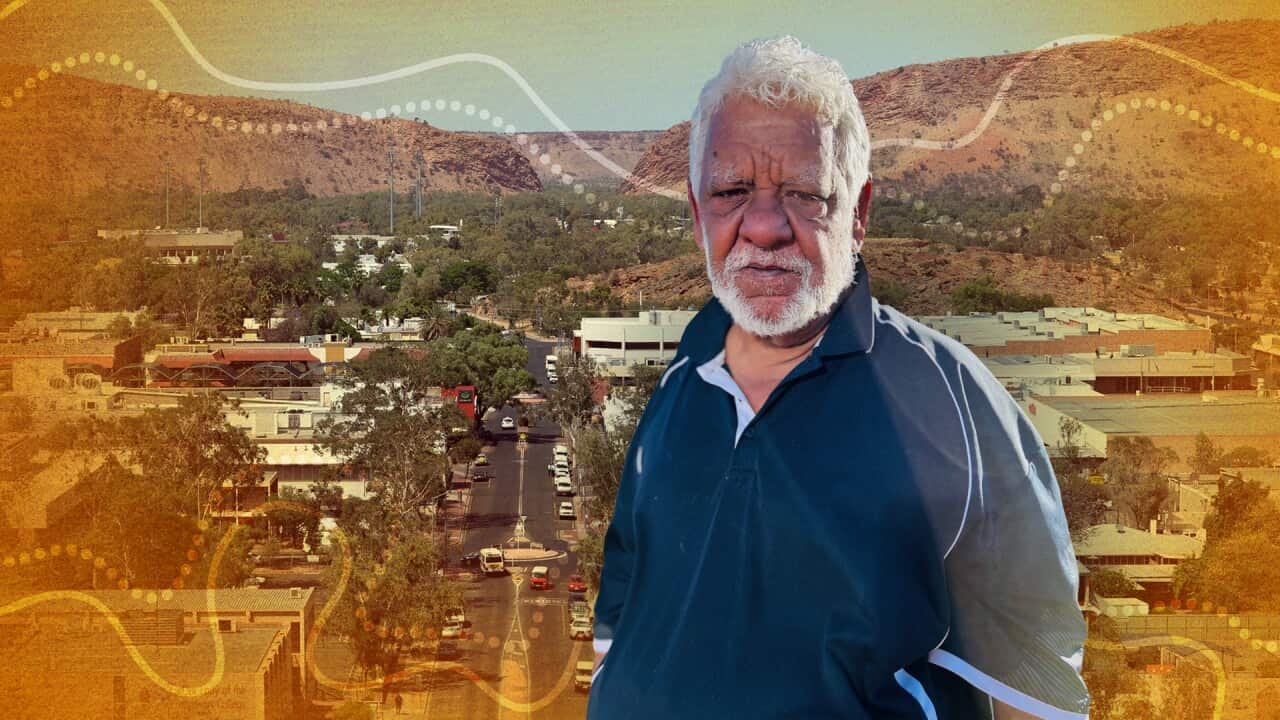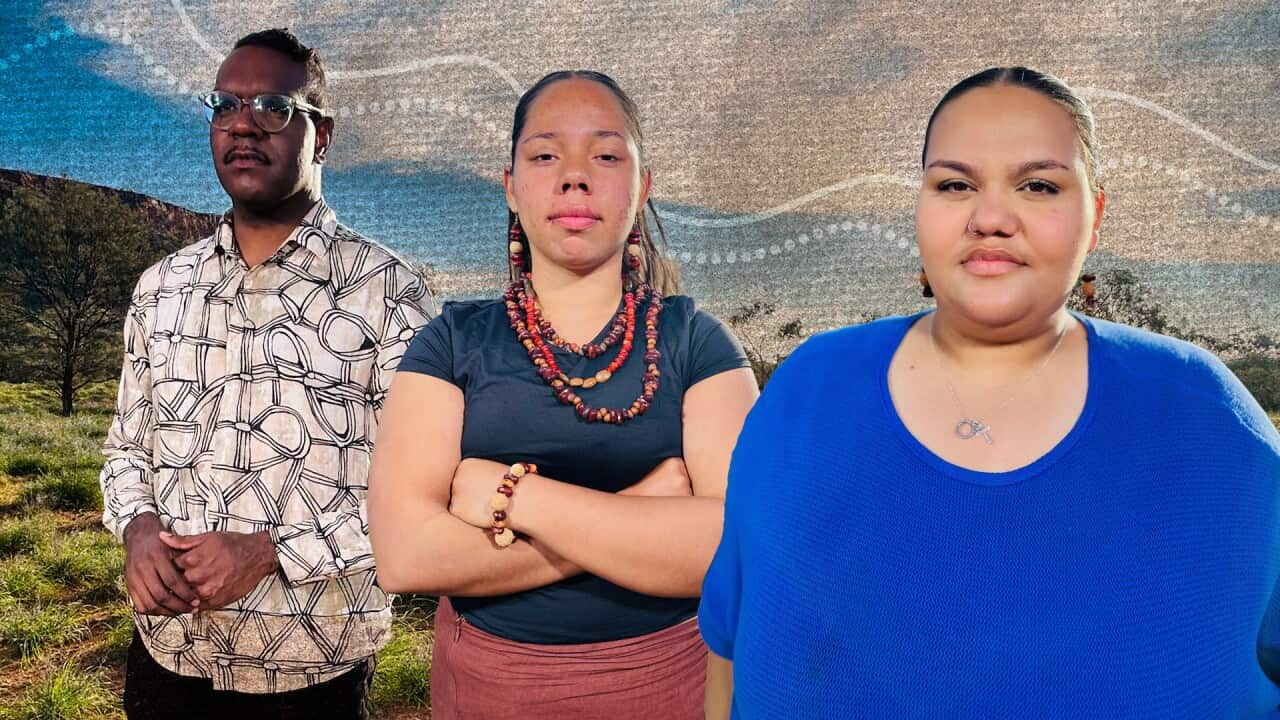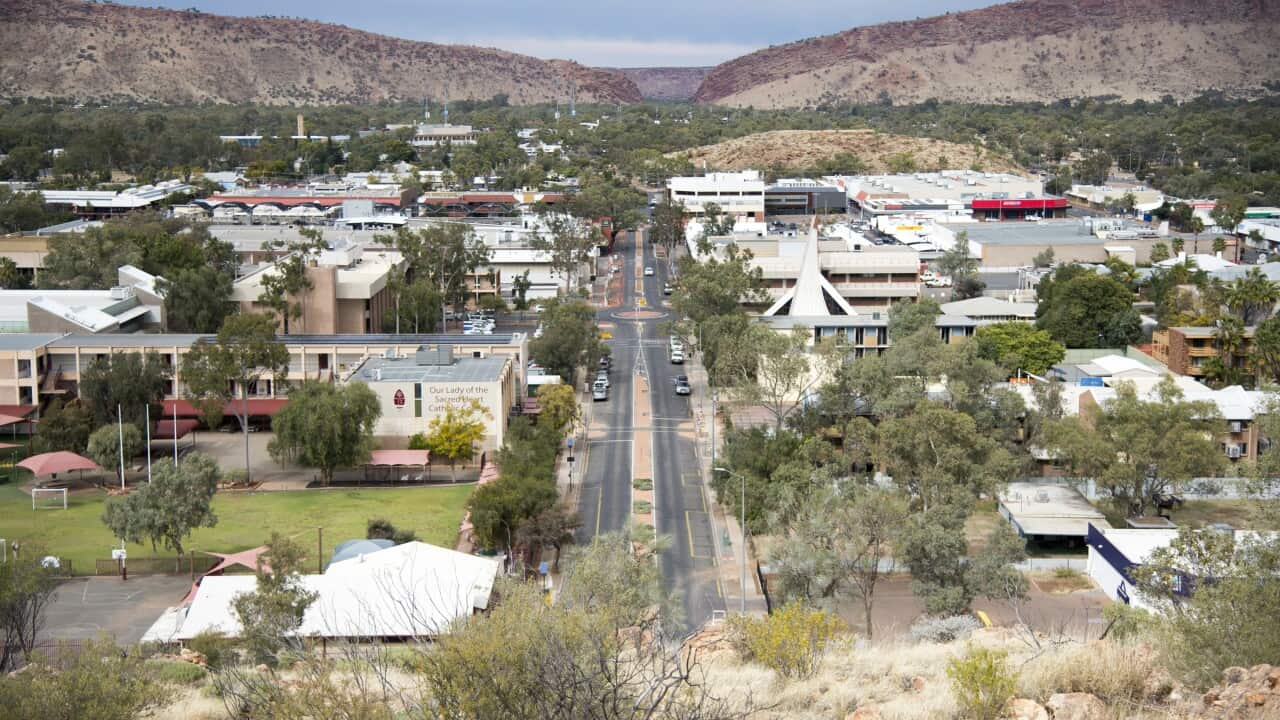William Tilmouth was just a boy when he was taken from his parents and moved to Croker Island, 250 kilometres off the coast of Darwin.
Now living back on Country, the senior Arrernte man, and founding chair of the NT Indigenous children's advocacy group Children's Ground, clearly sees the way forward in addressing the numerous challenges facing his community of Alice Springs.
“The people who suffer the greatest disadvantage should have the greatest voice,” he told The Point.
“We have substandard everything, from housing, to education, to employment opportunities, to basic infrastructure.
"It is actually accepted as the norm - accepted with complacency," he said.
Speaking in Mparntwe, Uncle William reiterated calls for governments to properly invest in community-led grass roots solutions for Alice Springs.
It's [the community’s] voice that should come through. They're the ones that should dictate what happens in their lives. They're the ones who live 24/7 in the problem.
Not-for-profit organisation Children's Ground runs early learning programs that use both western and cultural knowledge in four town camps around Alice Springs, as well as Aboriginal communities in the Top End.
Tonight’s panel discussion features passionate advocates with strong family and cultural ties to the region.
Joining Uncle William is Catherine Liddle (CEO of SNAICC - the peak body advocating for First Nations children), Cherisse Buzzacott (Senior Policy Officer for NT Indigenous Business Network) and Chansey Paech (NT Deputy Chief Minister and NT Attorney-General.)
The Point’s second show from Alice Springs comes as the town emerges from its second curfew in three months – .
Stream free On Demand

Who Cares About Alice?
episode • The Point • Current Affairs • 44m
episode • The Point • Current Affairs • 44m
Arrernte woman Cherrise Buzzacott believes that First Nations people have been trained to accept the way things are.
“You just have to be really, really strong in your beliefs, and I think that’s the only thing that's going to get us forward to make changem," she said.
"Because otherwise we're just creating another generation of kids that are hard done by - more poverty, and just more despair and health conditions.”
“It is the cycle, so how do we break that?” Ms Buzzacott questioned.
'Work with your communities'

The Point travelled to Alice Springs to speak with community leaders on their solutions for the town.
“When you have institutions and organisations like a Children's Ground, like our community-controlled organisations, they develop the positions that are relevant to their communities, that their families know keep children strong, that use the skills that our families have,” she said.
“So, it is genuinely about flipping that and saying: Work with your communities, what do you need, what do you want and how do we get there - and let's get back to that accountability bit.”
“No organisations have the level of accountability that Aboriginal community-controlled organisations,” Ms Liddle added.
Chansey Paech, an Arrernte and Gurindji man and NT Member for Gwoja, says that while he supports curfews as an interim circuit breaker to allow community and services to come together to look at immediate options – he doesn’t see them as long-term measures.
“The biggest way we can change these things is investing in the social determinants of justice. Investing in health, housing, education, governance, supporting governance, opportunities - empowering people for economic opportunities.”
“Because absolutely, the data, the research, the international evidence tells us that the earlier we put a young person into the criminal justice system or into detention, we embed their lifelong relationship with that system.”
“And as Aboriginal people, we don't want that to be the only pathway that our kids now,” he concluded.
William Tilmouth also sees a better pathway for youth of Alice Springs.
“Gone are the days of prescribed solutions. Let the people themselves, and as Children's Ground is, is that the child is there, and everything satellites around that child.”
“We have skilled First Nations educators, working with skilled mainstream educators. We employ mum and dad, we employ grandfather as a Cultural Advisor. We have more kids attending school now than ever before. We have more Aboriginal people employed in their own lives than ever before.”
“But we are not being noticed.” Mr Tilmouth said.
Watch The Point on Tuesdays at 7.30pm on NITV, or catch up on SBS On Demand.





